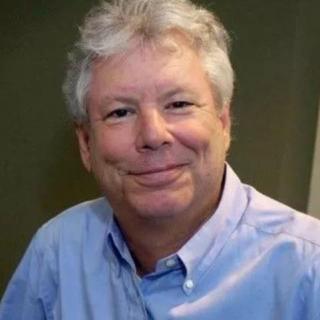
介绍:
Telephone Interview with Richard H. Thaler
Telephone interview with Richard H. Thaler following the announcement of the 2017 Sveriges Riksbank Prize in Economic Sciences in Memory of Alfred Nobel. The interviewer is Adam Smith, Chief Scientific Officer of Nobel Media.
[Richard H. Thaler] Hello.
[Adam Smith] Hi, this is Adam Smith, calling from Nobelprize.org, the website of the Nobel Prize in Stockholm.
[Richard H. Thaler] Yes.
[Adam Smith] Well, first of all, congratulations on the award of the Prize in Economic Sciences.
[Richard H. Thaler] Thank you.
[Adam Smith] May I ask how the news reached you?
[Richard H. Thaler] It woke me up.
[Adam Smith] [Laughs]. Nice way to be woken.
[Richard H. Thaler] Yeah. It’s good to see Sweden on your cell phone.
[Adam Smith] Of course. People will perhaps best know you for your book Nudge, published almost a decade ago. For those who don’t know, could you describe what a nudge is?
[Richard H. Thaler] A nudge is some feature of the environment that changes the behaviour of humans but would not change the behaviour of rational economic agents, what we call Econs. So, for example, the research I was talking about in Stockholm a couple of weeks ago was about two nudges in the Swedish pension system, one was creating default funds that people would take if they didn’t make a choice, and then the other was an advertising campaign encouraging people to not to take the default. The paper that we’re now writing is sort of a battle of those two nudges.
[Adam Smith] Right, yes, What’s your favourite example of a successful nudge?
[Richard H. Thaler] Well, you know, I would say probably the most successful has been the use of what we call automatic enrolment in pension plans, meaning the default is to join rather than not to join.
[Adam Smith] Right.
[Richard H. Thaler] For example, this has been used in a recent roll out of the national pension saving plan in the UK, and the enrolment rates are well over 90%.
[Adam Smith] It’s 15 years since your friend Daniel Kahneman was awarded the Prize. I suppose since then what we’ve seen is an absolute blossoming of the field of behavioural economics. Has it reached a point, do you think, where it can be used for making tools for setting public policy?
[Richard H. Thaler] Well, sure. I mean that’s what somebody asked me to come over to Stockholm to talk about three weeks ago. And I think our research has greatly changed pension systems all around the world. The idea of Save More Tomorrow where you invite people to commit themselves to saving move sometime in the future has been quite successful. We think there may be as many as 25 million people in the US involved in that programme. Countries all around the world, starting with the UK, have started behavioural insight teams, often referred to as nudge units. And they seem to be doing lots of good.
[Adam Smith] Just a last thing, we all like to think we’re different, don’t we? But somehow your work brings us all into a unifying theory. Is there a kind of disparity there between people’s individual belief in their own individuality and...
[Richard H. Thaler] Oh, sure. People are different. The key finding from Kahneman and Tversky’s research is not that everybody is the same but that on average, we tend to err in the same direction. So we all think that we’re going to finish projects sooner that we will, although some people procrastinate more than others.
[Adam Smith] Yeah. I think that describes me.
[Richard H. Thaler] Yeah. And my home contractor at the moment.
[Adam Smith] [Laughs]. You sound very calm, how do you feel?
[Richard H. Thaler] Uhh. Well, not calm.
[Adam Smith] Master of understatement. Will we look forward to welcoming you to Stockholm in December?
[Richard H. Thaler] Uh, yes. I had the pleasure of coming with Prof. Kahneman and he keeps telling me I better win it soon because he wants to go back. So it’ll be a pleasure to ask him to join me again.
[Adam Smith] Oh, that’s gorgeous. And you will reverse roles ...
[Richard H. Thaler] Yes.
[Adam Smith]...See it from different perspective. OK, well, we very much look forward to having you here. Once again, congratulations.
[Richard H. Thaler] Thank you.
[Adam Smith] And thank you for speaking to me. Bye bye.
大家还在听

